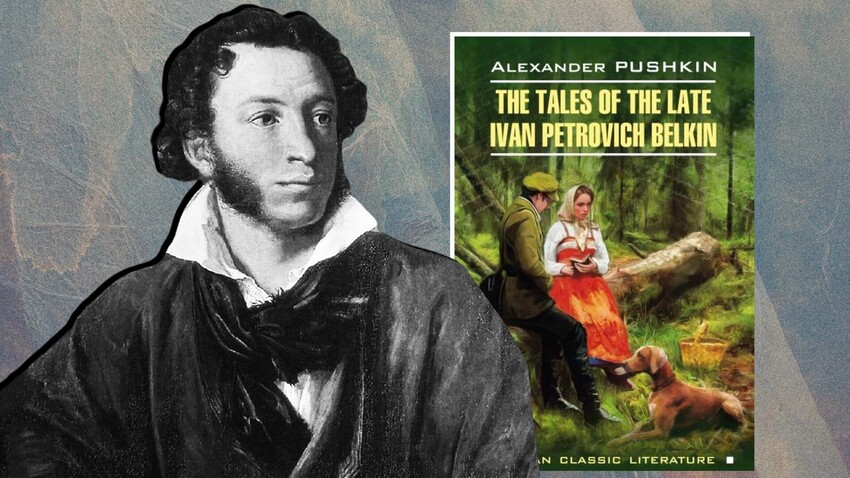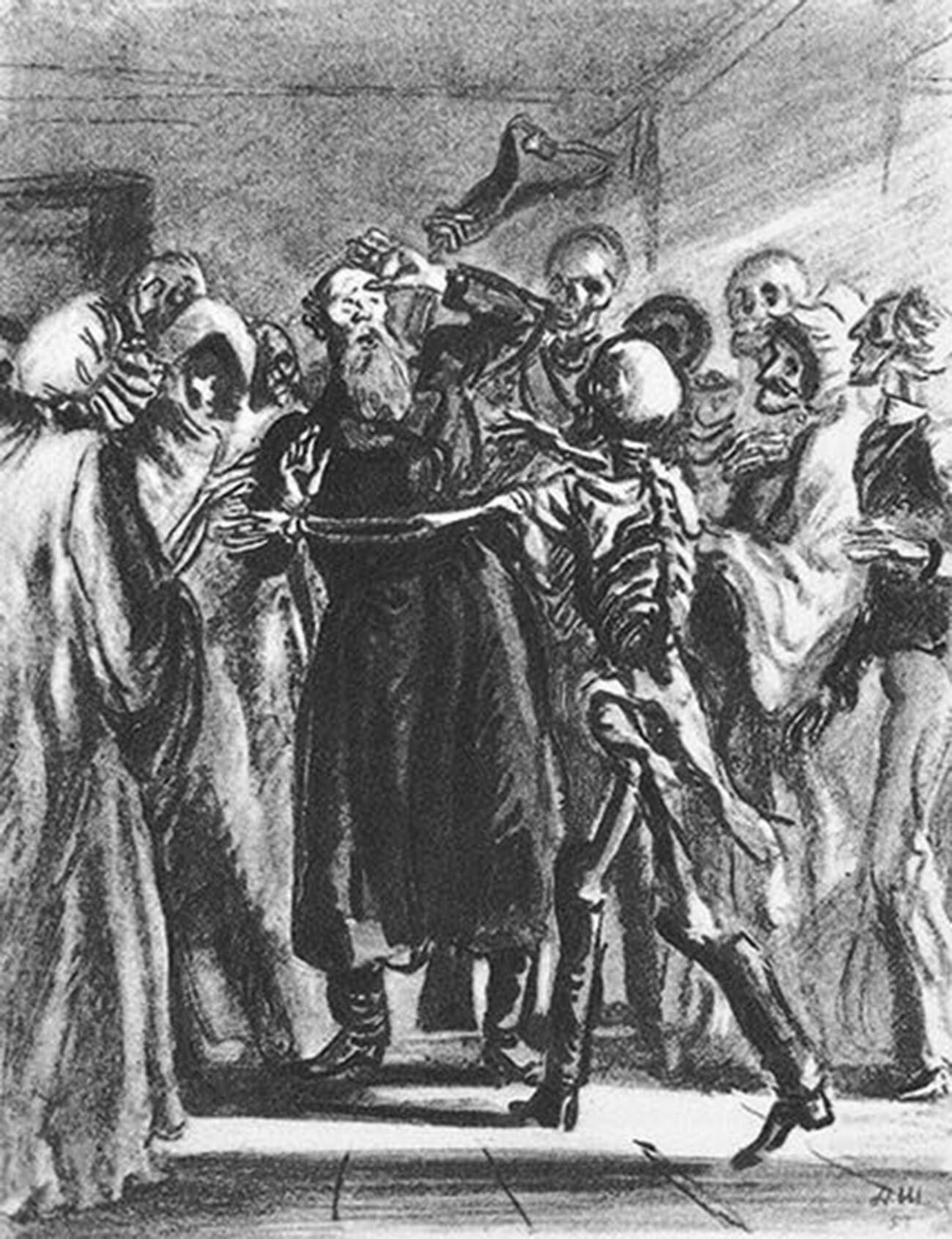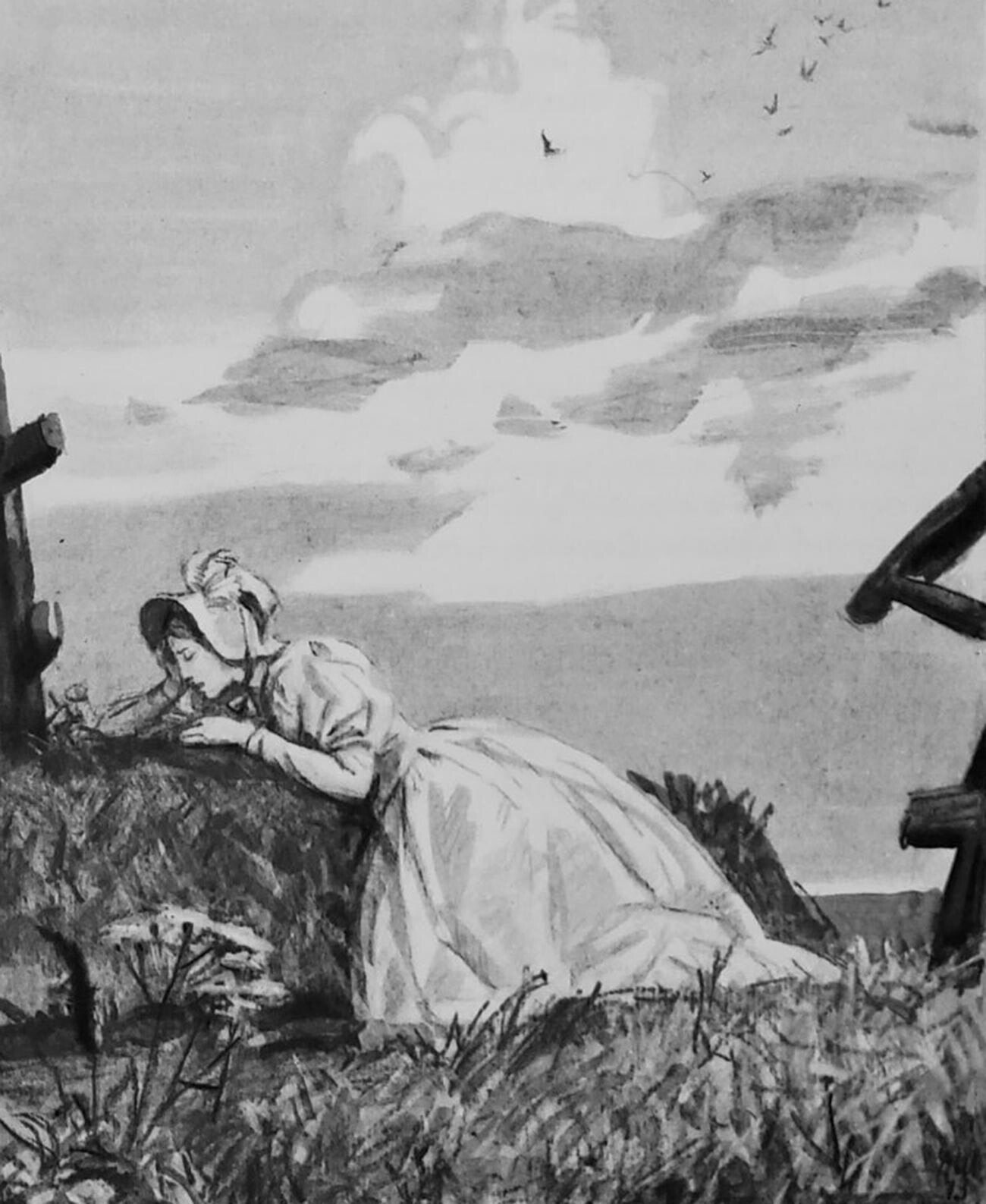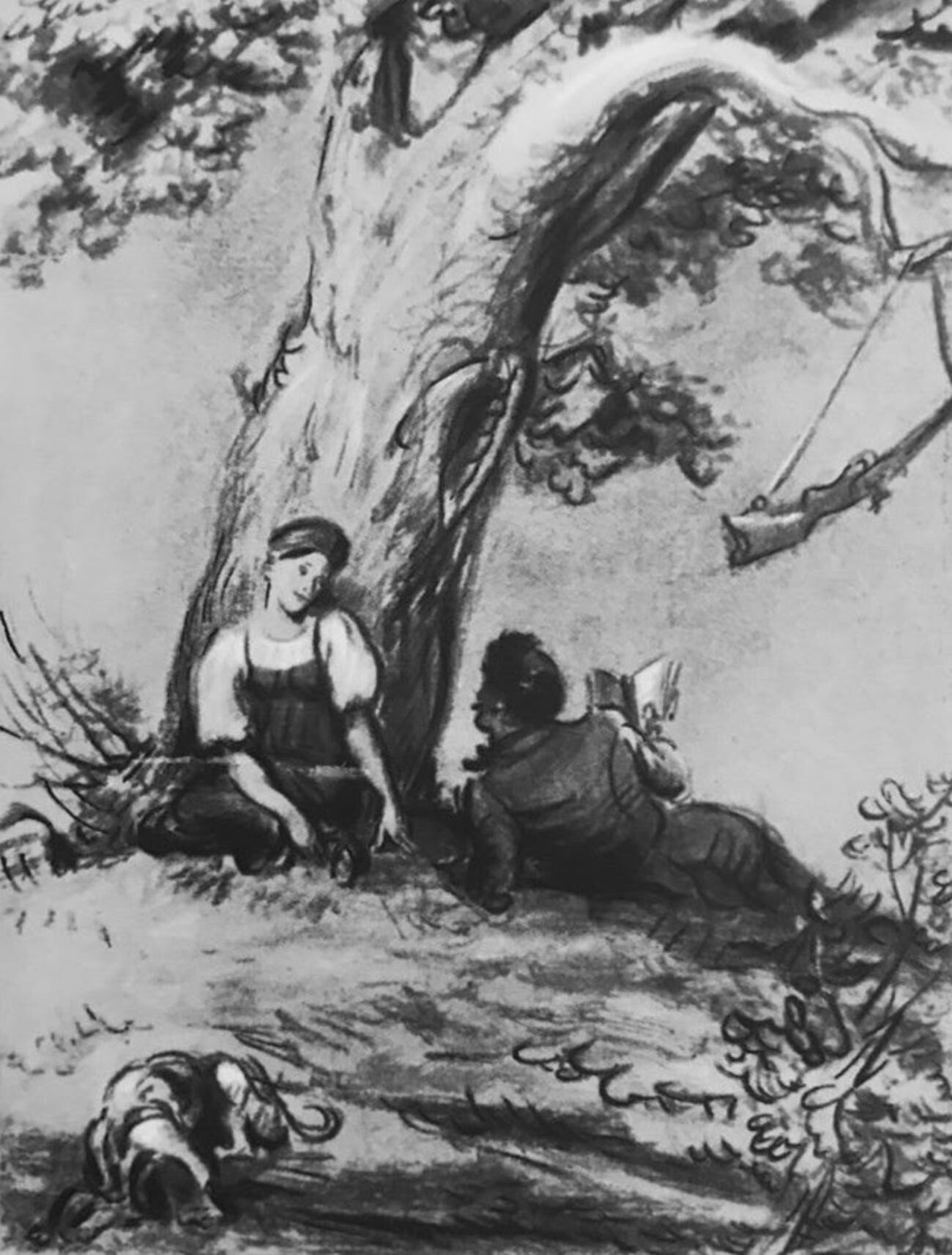

The narrator of this story, a military officer, meets a mysterious man named Silvio at a country outpost where he has been stationed for service. The serviceman often visits Silvio to play cards. The narrator becomes friendly with Silvio, who practices the art of shooting to perfection.
Once, an officer insults Silvio, but, contrary to everybody’s expectations, Silvio does not challenge him to a duel, as the custom dictates. The officers believe Silvio is a coward. However, the man explains his behavior to the narrator, his only confidant.
Years ago, Silvio challenged a young count to a duel. However, in the runup to the duel, Silvio finds out that his opponent has no fear of death. Killing the man who does not value life does not satisfy Silvio and instead of shooting, he offers the count to postpone the duel.
Silvio soon learns that his former opponent is engaged to be married and assumes that his attitude toward life and death has changed. Since this was his initial plan, Silvio appears before his former opponent to get his postponed revenge.
After several years, the narrator meets a new neighbor and his wife. In the hall of his neighbor’s house, the narrator sees a painting with two bullet holes placed extremely close to one another. This accuracy reminds him of his old friend Silvio and the narrator tells this to his neighbor.
Upon hearing this, the narrator’s neighbor reveals that he was Silvio's opponent. When Silvio comes to him demanding his postponed right to a duel right after the count’s wedding, the count agrees and draws to shoot first, but misses and hits the painting. As Silvio aims to shoot, he sees the bride who enters the room in fear. Feeling remorse, Silvio shoots without aiming, but still places the bullet right on top of the hole made by the previous shooter. Thereby, Silvio demonstrated that he could have easily killed the count, but decided to spare his life driven by more noble feelings than thirst for revenge.

A young noblewoman named Marya Gavrilovna falls in love with a junior officer named Vladimir. However, the woman’s parents do not approve of their relationship because of Vladimir’s lower social status.
The lovers conspire to elope to get married secretly in a midnight ceremony in a nearby village. On the night of the ceremony, a strong snow storm occurs. Vladimir is lost in the blizzard and realizes he cannot make it to the designated place on time for the ceremony.
Upon returning home, Marya Gavrilovna grows ill and delirious with fever. Seeing her suffering, her parents give their permission for her to marry Vladimir, but they soon are informed that the man has been killed in the Battle of Borodino.
Later, Marya Gavrilovna and her family move to a different estate where different men seek the woman’s hand in marriage. However, the heartbroken woman turns them all away, except for a cavalry officer named Burmin. Love sparks between the two, but Burmin says he cannot marry Marya Gavrilovna, because he is already married to a woman he does not know.
Burmin proceeds to explain that he was once lost in a snowstorm while traveling. Finally pulling into a small town, Burmin is met by a priest who informs him he is late for the wedding. For the sake of the joke, Burmin decides to play along. However, the bride faints when he turns to kiss her.
Regretting his joke now, Burmin says he is still faithful to his wife, despite not knowing who she is. Marya Gavrilovna realizes Burmin was the man she saw in the church when she was expecting her lover. Upon finding out their true identities, the couple falls deeply in love.

An undertaker named Adrian Prokhorov makes a living out of preparing corpses of the dead for burial and making funeral arrangements. He moves to central Moscow and sets up shop in his new neighborhood where mostly German merchants reside.
During one of the parties with his neighbors, Prokhorov takes offense at a joke from one of the merchants, who offers a toast to the health of Prokhorov’s clients, the deceased. Offended, Prokhorov leaves the party saying he would rather party with his clients instead.
Upon arriving home, Prokhorov is shocked to see that corpses and skeletons have accepted his invitation and arrived at his house. To Prokhorov’s horror, the deceased accuse the man of overcharging and cheating. Suddenly, he wakes up and realizes this is only a drunken dream.

Caught in the rain, the narrator stops at the postal station, where he meets Samson Vyrin, the stationmaster who is responsible for providing such services as fresh horses, beds and food to travelers. The narrator also meets the stationmaster’s beautiful fourteen-year-old daughter named Dunya.
A few years later, the narrator comes back to the station, but Dunya is no longer there. Vyrin tells him the story of her disappearance. One day, a young officer arrived at the station, fell ill and stayed there for several days. As he was about to leave, the officer offered to give Dunya a ride to the church. It soon turned out that the officer had taken the girl with him.
Vyrin goes to St. Petersburg to get his daughter back, but the rich officer tells him he is in love with Dunya, gives the stationmaster some money and turns him away.
Once again at that station, the narrator learns that Vyrin died a year ago. He also learns that some beautiful young lady and her three children once came to the old man’s grave and wept there for a long time. The narrator was satisfied to know that, despite the stationmaster’s fears, the officer did not abandon young Dunya as he was genuinely in love with her.

Two landowners do not get along because of different views on how to take care of their land. One of them has a daughter named Lisa, the other one has a son named Alexei, who comes to visit his father one day.
Learning about the guest, Lisa wants to see Alexei for herself. The young woman disguises herself as a peasant girl and meets Alexei in the woods, pretending to be the blacksmith’s daughter.
Alexei falls in love with the bright and pretty peasant girl and the couple begins to meet in secret.
A few months later, the landowners reconcile and become close friends. They decide to arrange a marriage between their children. However, Alexei protests against this decision, as he is in love with who he believes to be a peasant girl. The young man goes straight to his neighbor to explain himself, but sees his beloved “peasant girl” and realizes he can now fulfill his father’s wish and marry the woman he loves.
‘The Tales of the Late Ivan Petrovich Belkin’ represents one of Alexander Pushkin’s first attempts at writing prose. The author deliberately rejects the authorship of the prose work and gives it to Ivan Petrovich Belkin, a fictitious, deceased man.
According to Pushkin’s design, Belkin collects these short stories from different storytellers he meets throughout his life. In the meantime, the real author remains hidden behind a double chain of fictional narrators.
All five short stories that comprise ‘The Belkin Tales’ depict the life of ordinary people living in the Russian Empire along with their problems, hopes and dreams. The result is impressive in scope and beautiful in simplicity.
‘The Tales of the Late Ivan Petrovich Belkin’ became a hallmark of what became known as the ‘The Boldinsky Autumn’, the most creative period in the life of Alexander Pushkin.
Dear readers,
Our website and social media accounts are under threat of being restricted or banned, due to the current circumstances. So, to keep up with our latest content, simply do the following:
If using any of Russia Beyond's content, partly or in full, always provide an active hyperlink to the original material.
Subscribe
to our newsletter!
Get the week's best stories straight to your inbox